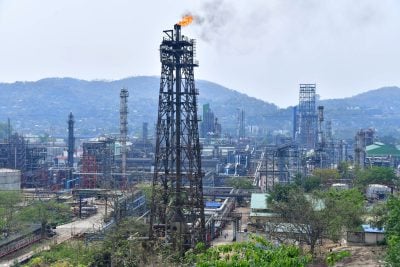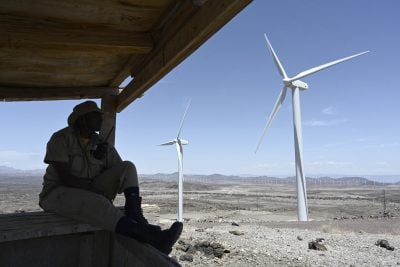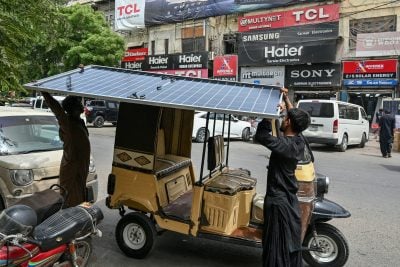The African Development Bank (AfDB) Group’s Board of Directors has approved 24 fast-track programmes to help Africa mitigate rising food prices and inflation.
The $1.13bn funding constitutes the first batch of approvals for the Bank’s $1.5bn African Emergency Food Production Facility, which aims to provide seed, fertiliser and agricultural technology to over 20m African smallholders
Beneficiary countries of the first batch of approvals:
West Africa (8): Senegal, Liberia, Niger, Togo, Sierra Leone, The Gambia, Côte d’Ivoire Nigeria
East Africa (5): Tanzania, Kenya, Burundi, South Sudan, Somalia.
Southern Africa (6): Eswatini, Madagascar, Malawi, Zimbabwe, Zambia, Mozambique.
Central Africa (4): Central African Republic, Chad, Democratic Republic of the Congo, Cameroon.
North Africa: (1) Egypt
New AFDB programme aims to boost food production
In May, AfDB president Akinwumi Adesina struck a defiant tone in response to the possibility of food shortages on the continent.
“We were not ready for Covid-19. But for agriculture, for food, we are ready. Africa will not face a food crisis,” he told journalists on the eve of the AfDB’s Annual Meetings.
Russia’s invasion of Ukraine – two countries that together provide over 30m megatons of annual food exports to Africa – has pushed the global price of wheat, sorghum and other basic foodstuffs, as well as key agricultural inputs such as fertiliser, to new heights.
This has added to the stresses of years of poor rainfall and weak harvests on the ability of local producers to meet Africa’s food needs.
If, as predicted by the IMF in the latest World Economic Outlook, these stresses endure well into 2023, rising political instability may follow, as populations struggle to recover from the impact of the pandemic on their lives and livelihoods, and blame their plight on governing elites.
The AfDB’s $1.5bn Emergency Food Production Facility hopes to generate an additional 38m tonnes of food, worth $12bn, in just two years.
The Bank has endorsed a five-year programme aimed at rectifying the systemic barriers to greater food production on the continent, to ensure the long-term sustainability and resilience of Africa’s food systems.
This latest facility, as well as the Bank’s longer-term reform agenda, reflects a major onshoring trend that is sweeping developed, and developing economies.
In a reversal of conventional development wisdom, and spurred by the chaos of Covid-19 and the war in Ukraine’s disruption of international supply chains, countries in regions as diverse as Europe, Australasia and now Africa are seeking to boost their self-sufficiency by replacing imports of essential commodities with local production.
Agriculture ‘must generate wealth’
Will it work? Adesina points to Sudan slashing wheat imports by 50%, and Ethiopia’s transformation from net wheat importer to exporter in just five years.
Technology, such as the genetic modification of crops, will be key to delivering an agricultural revolution, he believes.
Adesina’s vision for Africa’s agricultural sector is for a large, productive, corporatised and highly technical industry, capable of generating large volumes of basic commodities that can simultaneously feed the continent while competing with the world’s biggest food producers.
”Agriculture must be a business,” he says, “not a way of life. It must generate wealth.”
But the road will be rocky. As the first Green Revolution in the second half of the 20th century showed, imposing a technology-driven agribusiness model over sprawling networks of small, fractured, diverse and often-unproductive producers is not economically, socially, culturally or politically seamless.
Moreover, it requires substantial investment. The AfDB estimated that the transformation of 18 key value chains would cost $315bn over the 2016-25 period. Meanwhile climate change – the single greatest threat to agricultural production and food security – is being felt with increasing urgency around the world, especially in Africa.
Yet Adesina is hopeful: “For the first time ever”, he says, “Africa will not be begging for food.”
Article updated on 18 July. Additional reporting by Charles Dietz.
Want to continue reading? Subscribe today.
You've read all your free articles for this month! Subscribe now to enjoy full access to our content.
Digital Monthly
£8.00 / month
Receive full unlimited access to our articles, opinions, podcasts and more.
Digital Yearly
£70.00 / year
Our best value offer - save £26 and gain access to all of our digital content for an entire year!

 Sign in with Google
Sign in with Google 





